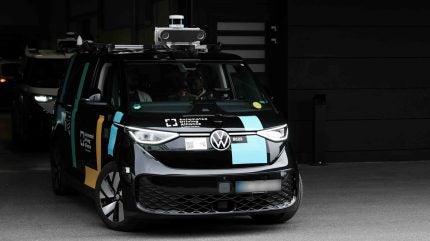
Bosch and Volkswagen Group’s software subsidiary, Cariad, are enhancing their collaboration in the “Automated Driving Alliance” by incorporating advanced AI methods into their software stack for Level 2 and Level 3 automated driving.
This move aims to create intelligent driver assistance systems that emulate human driving behaviour, elevating the driving experience and improving safety.
The software stack is designed to handle the critical cognitive functions of driving, such as perception, interpretation, decision-making, and action.
By leveraging modern AI, the alliance is progressing toward its objective of making automated driving accessible to a wide range of consumers, from the mass market to the premium segment.
The partners envision new driving functions that will enable hands-free driving in various scenarios.
Initial versions have been deployed in test fleets and are undergoing continuous training and development using extensive data sets.
A production-ready software stack is expected to be available by mid-2026.
Volkswagen plans to integrate these automated driving functions into its new software-defined vehicle architecture.
Bosch also intends to offer this scalable solution to other manufacturers globally to promote widespread adoption of automated driving.
AI has been a cornerstone of the alliance’s work, particularly in perception tasks like the recognition of objects.
The latest AI stack can analyse complex urban traffic scenarios and predict the road users’ behaviour, Cariad said.
This advanced technology is being developed within a modern engineering environment and a comprehensive hardware strategy, ensuring scalability and future-proofing across all vehicle classes.
The software stack also paves the way for integrating multimodal AI approaches, such as vision-language-action (VLA) methods, which could further improve the system’s training and understanding of traffic situations.
VLAs have the potential to identify hidden driving risks and prompt suitable responses.
A global test and validation fleet is crucial for this development, with teams from Cariad and Bosch testing driving functions on public roads across the US, Japan, and Europe.
The development process is data-driven, allowing for frequent software updates and optimisations to be imported into test vehicles.
The technology is currently in use in test vehicles such as the ID.Buzz and the Audi Q8, with plans to expand the test fleet significantly this year to gather “high-quality” data.
This data will be instrumental in refining the AI stack and addressing complex and rare driving situations called corner cases.








